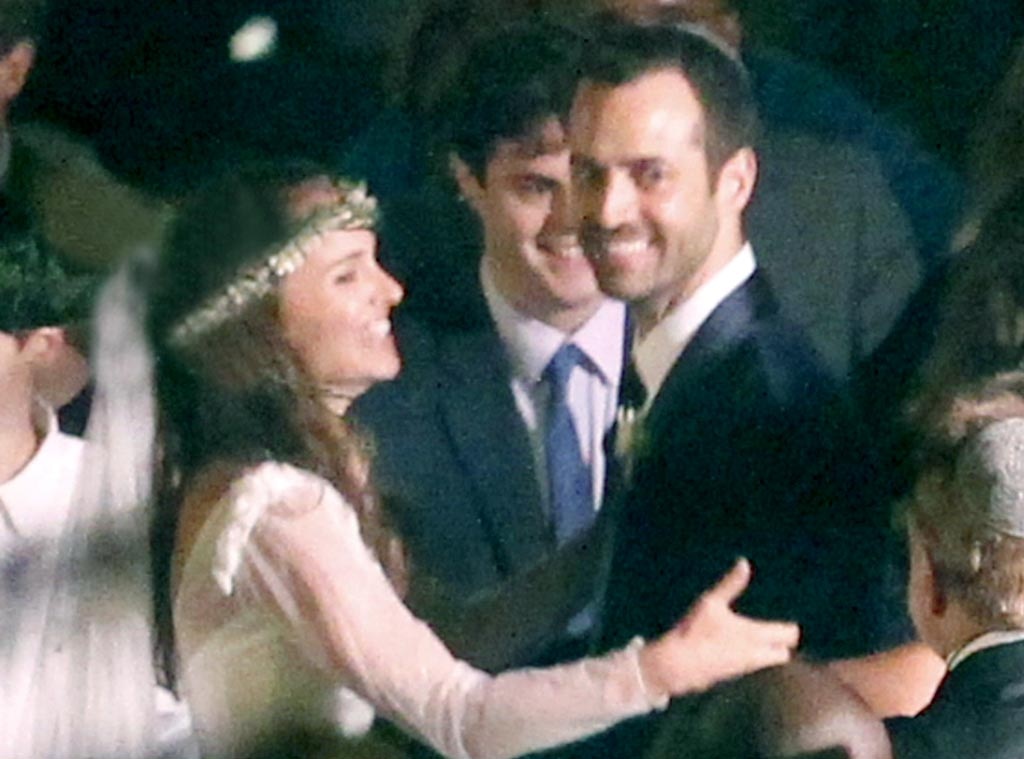 FAMEFLYNET PICTURES
FAMEFLYNET PICTURESNatalie Portman married Ben Millepied in a Jewish ceremony. He, however, is not Jewish, so how come they could marry under a chuppah with a rabbi?
—Juliette S., via Facebook
It's not clear whether Millepied converted to Judaism before the wedding, but no matter. Not every wedding officiant is strict about religious rules and regs. I once attended a gay wedding under a chuppah and officiated by a rabbi. Chelsea Clinton's interfaith wedding included a rabbi. There's a rabbi for everything.
Got more questions about, well, anything? Of course you do! And we've got the answers lined up for ya...
What is Elton's problem with Madge? How long has their feud gone on and what started it?
—Drama Drama Drama, via the inbox
I was able to trace the "feud" you mention to about seven years. I put the word in quotes because it's supposed to mean a beef between two people, and not what has actually gone on since 2004, which is this: Elton John bitching about Madonna in public. First, the '70s-era rock icon accused Madge of lip-syncing at a live show. He's since followed that up by dissing her work on her movie W.E., slamming of her "disaster" of a current tour, and accusing her of—horror of horrors—meanness to Lady Gaga.
Are there any stars that we can see aren't narcissists?
—Lauren S., via Facebook
Not from here. From your distant vantage point as a fan, you can't really tell if someone has that kind of personality disorder—no matter how many interviews you watch or photos you see. Even a face-to-face meeting or an interview with a star doesn't usually yield enough information for that kind of conclusion. After all, we're talking about, as Dr. Drew Pinsky puts it, "a clinical trait."
All this outrage over Matt Lauer's use of the term "Indian giver." Is the phrase offensive or not?
—Wilcox, via the inbox
The origin of the idiom is a matter of dispute. One of its earliest uses came in 1765, when researcher Thomas Hutchinson mentioned an "Indian gift." He called the phrase a "proverbial expression, signifying a present for which an equivalent return is expected." Whatever its history, the phrase is considered offensive by many indigenous Americans.
Why can´t I download the show anymore through iTunes?
—Tiro, via Twitter
Oh, but you can.